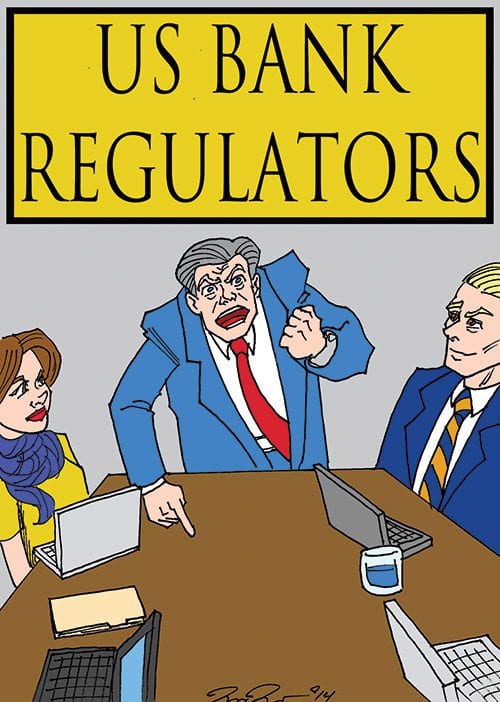
The Community Reinvestment Act requires banks to make loans and charitable contributions in communities from which it generates deposits. That is a beneficial requirement, but like any government regulations its implementation can sometimes be impractical and unworkable. The Boston Globe took the CRA criticism of OneUnited Bank as an opportunity to attack the bank rather than shed light on the accuracy of the assessment.
The regulators’ criticism was directed against the modest number of home mortgages made by OneUnited Bank in Boston and Miami. Indeed, banks should be willing to make home loans in their service area. However, the Great Recession has taught this nation that it is imprudent to increase the number of loans by deviating from reasonable qualifying standards.
The issuance of a large number of subprime mortgage loans helped to facilitate the collapse of the banking system between December 2007 and September 2010. Wall Street financiers amalgamated subprime mortgages into collateralized debt obligations (CDOs) which were sold to financial institutions. The CDOs were later found to be worth far less than their stated face value.
As might be expected, African Americans suffered more than other groups when the real estate bubble burst. According to the Institute on Assets and Social Policy at Brandeis University black families were twice as likely as the general population to be victims of subprime or predatory lenders. The Urban Institute estimates that black families lost 31 percent of their wealth in the Great Recession.
Economic recovery of black families from the recession that technically ended in September 2010 has not been substantial. A study two years later by the Federal Deposit Insurance Corporation found that one-third of black households are underbanked and 21.4 percent have no banking relationship at all. This is true of only 8.2 percent of all households. The absence of a strong bank history does not help when seeking a mortgage loan.
Despite these adverse economic circumstances among black families, the record of OneUnited Bank for providing credit to its targeted urban communities is extraordinary. The bank has made over $300 million in loans since 2009 and 65 percent are in low-to-moderate income areas. Similar loans are true of only 15 percent of other banks across the country. And more than 65 percent of OneUnited loans are in communities with a 90 percent or more minority population. This is true for only 3 percent of all other U.S. lenders.
The management team at OneUnited Bank is understandably disappointed that so many residents of the communities it serves are unable to qualify as new homeowners. To remedy the problem the bank has begun a new program to help bank customers build their credit ratings so they can qualify for home loans with any lender. At considerable expense and some risk, the bank has launched UNITY Visa, The Comeback Card that will enable holders to develop a satisfactory credit rating.
In their assessment of OneUnited Bank’s performance, the bank regulators failed to evaluate the vitality of the residential real estate markets in the relevant areas of Boston and Miami. The flaws in the assessment under CRA regulations provide an opportunity for the press to support a local institution, the nation’s largest black-owned bank. Instead, the Boston Globe took the opportunity to pile on with additional questionable criticisms of OneUnited Bank.
The Boston Globe has some explaining to do about its continuing assaults on major black institutions.
EDITOR’S NOTE: Bay State Banner Publisher and Editor Melvin B. Miller is a director of OneUnited Bank.






